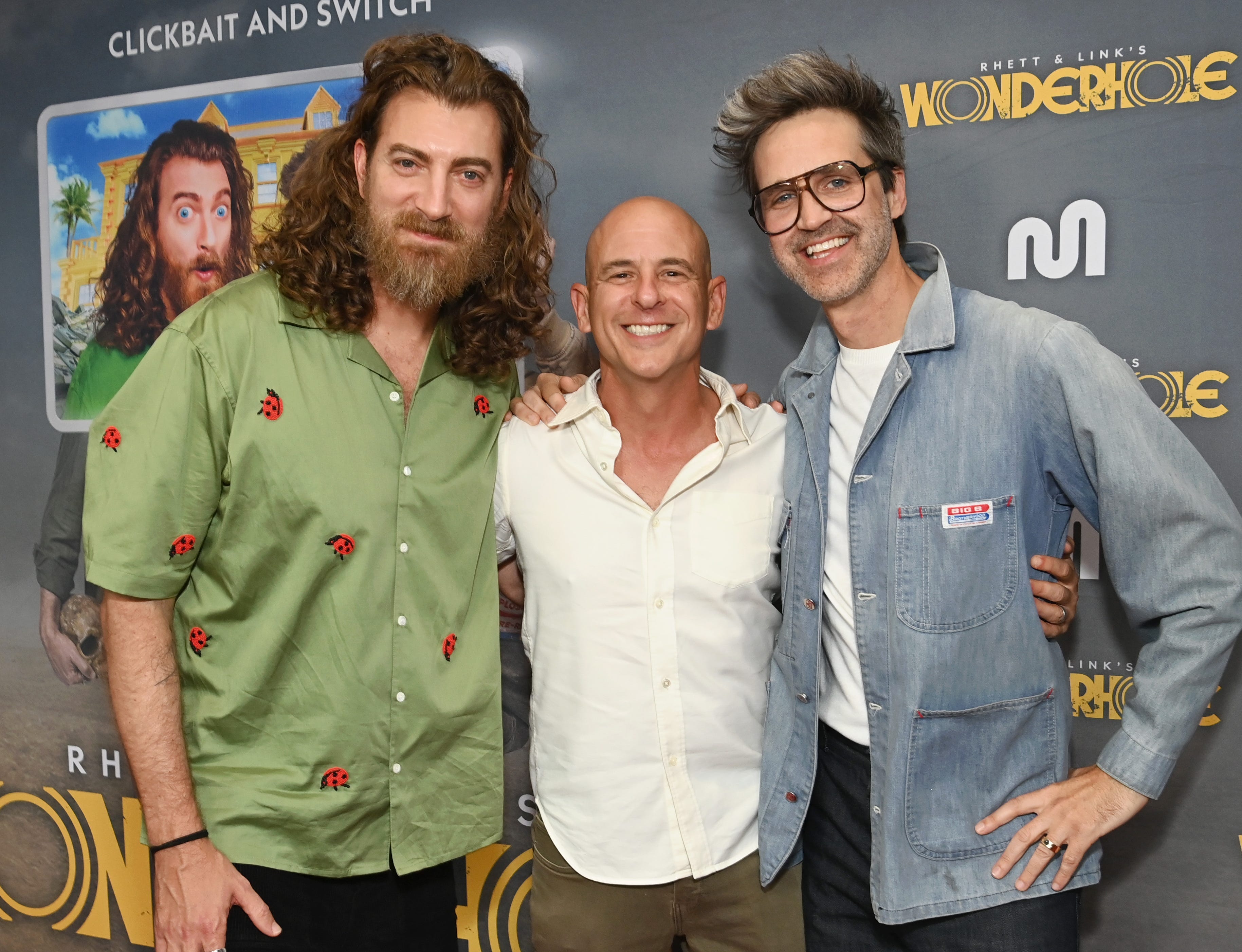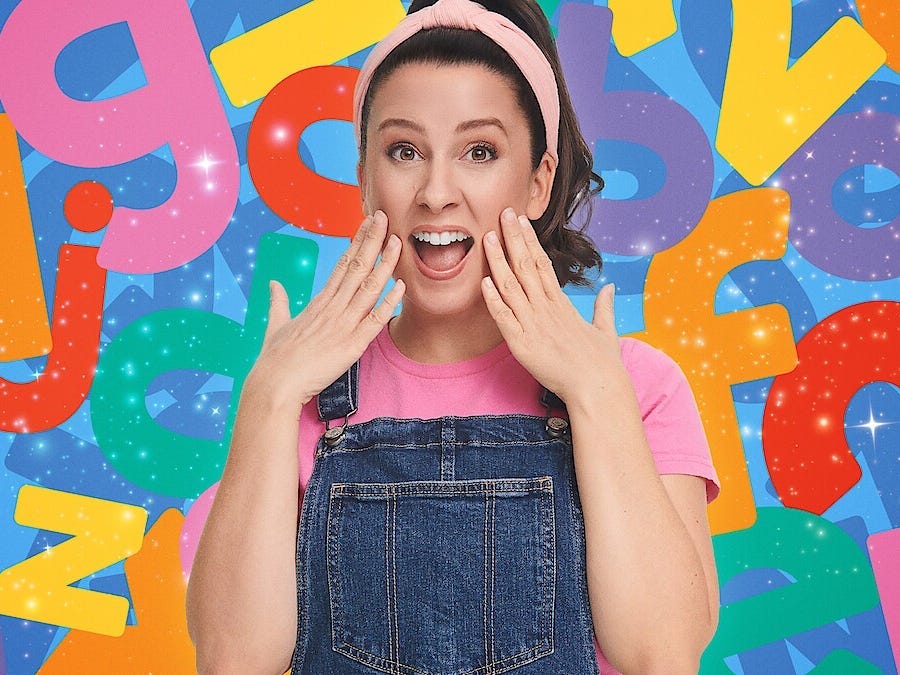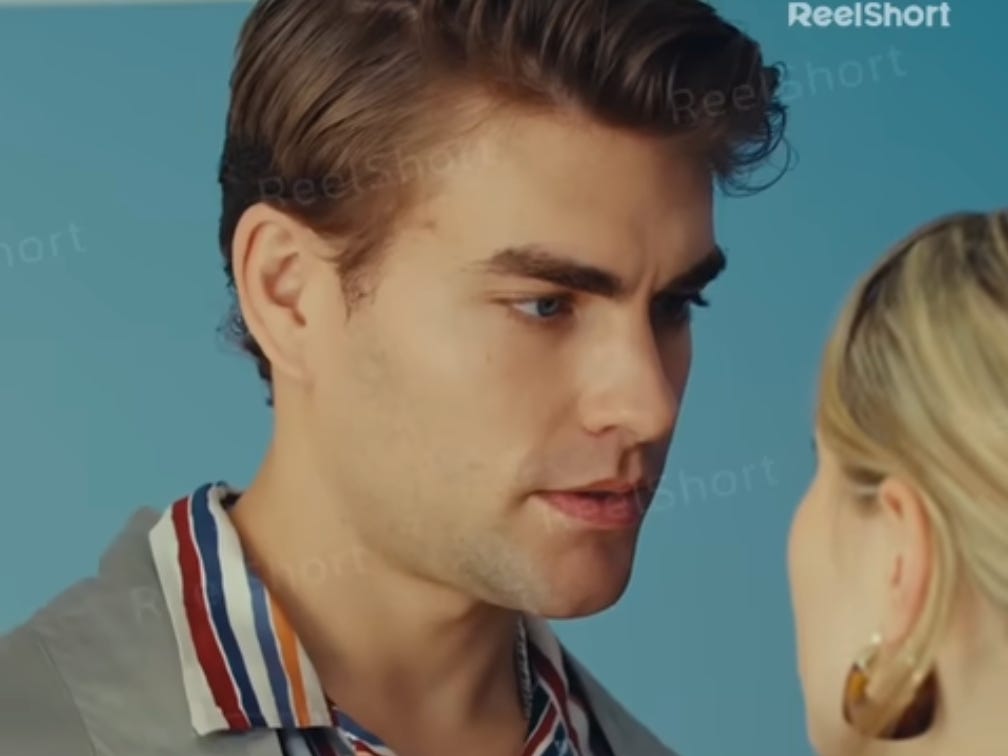
Rich Storry/Getty Images
2025 will go down as the year that YouTube, not Netflix, officially became the streamer to beat in Hollywood. The reason: creators have become the new titans in town.
You could feel the tone shift on Netflix’s recent earnings calls. Execs have insisted Netflix is superior to YouTube while also making it clear they’re open to deals with its stars.
“We’re looking for the next generation of great creators, and we’re looking everywhere,” co-CEO Ted Sarandos said in April.
It’s not just talk. Netflix has done deals with star creators, including kids entertainer Ms. Rachel, The Sidemen, and, most recently, science educator Mark Rober. Business Insider previously broke the news that the streamer is seeking a leader to develop video podcasts, and was name-checking “Survivor” and “The Bachelor” in riffing on what Netflix’s next creator franchise could look like.
Amazon snagged the creator economy’s biggest prize, signing YouTuber MrBeast last year for a competition show, Beast Games. The show aired its season finale in February and was renewed in May for two more seasons. Comcast’s Peacock, Disney’s Hulu, and others are also working extensively with creators.
“The creator economy reached a new level this year, further breaking into the mainstream and public consciousness,” said Brent Weinstein, a senior leader at talent giant Creative Artists Agency. “There’s been a generational shift with people who never knew a world where YouTube, TikTok, or Instagram weren’t ubiquitous to society and central to their lives.”

Jon Kopaloff/Getty Images for Mythical Entertainment
Entertainment companies dabbled in creator-led shows in the past, but they largely slotted the influencers into typical host roles. Those early efforts often were duds. But as YouTube began to dominate the living room — beating Netflix as the most watched streaming service on TV — Hollywood gave creators a second look.
“In the past I’ve tried to have these conversations, and it was very hard to get someone to take you seriously,” said Jack Harris, who’s building a new creator-services arm at Innovative Artists. Now, he said, he’s in talks with Netflix to develop a scripted series with a big client, and studios are interested in making shows starring not just one but an ensemble of creators.
One of those taking creators seriously is Fox-owned Tubi, which just launched Tubi for Creators, a program that puts creator-made shows on the streamer. Three months in, it boasts 60 creators representing 5,000 episodes. The plan is to provide some with development funding and brand revenue.
“We’re not trying to help them make TV shows — they already are,” said Rich Bloom, a senior Tubi exec leading Tubi for Creators. “Creators have already proved they can make really sophisticated content with high production value and storytelling. Streaming platforms need to figure out what’s the right way to harness, accentuate, and grow that success.”

Netflix
Creators have grown up
Today’s creator economy is different from the one Hollywood met in its earlier forays into that world.
YouTube, along with Instagram and TikTok, have become the main dish in many people’s entertainment diet. That’s helped independent creators establish steady revenue and distribution streams. YouTube said last year that it paid out $70 billion over three years to creators, artists, and media companies. Ad giant WPP predicted that creator platform ad revenue would eclipse that of old media this year for the first time.
That ad revenue has helped many creators shell out for high-cost videos, with some even pumping out scripted series that resemble traditional TV shows. Creators are also putting together teams that increasingly resemble old-fashioned media companies, with executive teams from old Hollywood and its talent agencies WME, CAA, and UTA, all of which now have divisions devoted to digital creators. MrBeast’s company, Beast Industries, employed 350 people as of April. Dhar Mann’s company said it had 200 staffers as of July.
Creators’ increased professionalism has attracted investors. Trick-shot troupe Dude Perfect raised $100 million last year while MrBeast and Dhar Mann were pitching investors earlier this year.
“When I’m speaking with people from Hollywood, Madison Avenue, and Wall Street, the two consistent themes they are talking about are the rise of AI and the creator economy,” said Jeff Housenbold, president and CEO of Beast Industries. “We’re leveraging both of the biggest themes known to man right now.”
Will new formats emerge?
Netflix’s interest in creators comes as the streamer has gone all in on “engagement,” or how much people are watching and interacting with its platform. With its days of rapid subscriber growth coming to a close, Netflix is focusing on getting people to spend more time on the service. That helps prevent them from canceling and also is a boon for Netflix’s growing ads business.
Some Hollywood insiders think that Netflix and other streamers will introduce new content formats as they draw closer to creators.
One idea that frequently comes up in conversations is interactive shows that let people feel like they have a relationship with their favorite creators. Then there are the mini dramas — soapy fare shot in vertical video that’s meant to be consumed on your phone — whose popularity has been exploding thanks to new apps with roots in China.

ReelShort via YouTube
Netflix recently updated its app with vertical video previews. Could that be a precursor to a format more directly targeted to mobile phones?
Despite the gains by creators, blockbusters and prestige TV aren’t going away. At Tubi, which has been a leader in the space, creator content still makes up under 2% of the episodes in its library. And some recent creator-led shows have flopped. Netflix got lukewarm reviews for its adaptation of the YouTube live dating show “Pop the Balloon,” for example.
The sheer number of independent creators out there makes it harder than ever to figure out who will succeed on a bigger stage, leading to some caution among buyers in Hollywood, said Lisa Filipelli, partner at Select Management Group.
“They’re not spending too much on riskier things,” she said of the major studios.
Many in Hollywood think it’s inevitable that the lines will keep blurring and that people eventually won’t differentiate between creators and traditional talent.
“A watershed moment would be, we stop thinking about these as there’s a stark difference between traditional and creator content and just start talking about what content is popular on TV,” Tubi’s Bloom said. “I think we’re not that far away from it.”
The post Why 2025 is the year of the creator in Hollywood appeared first on Business Insider.




